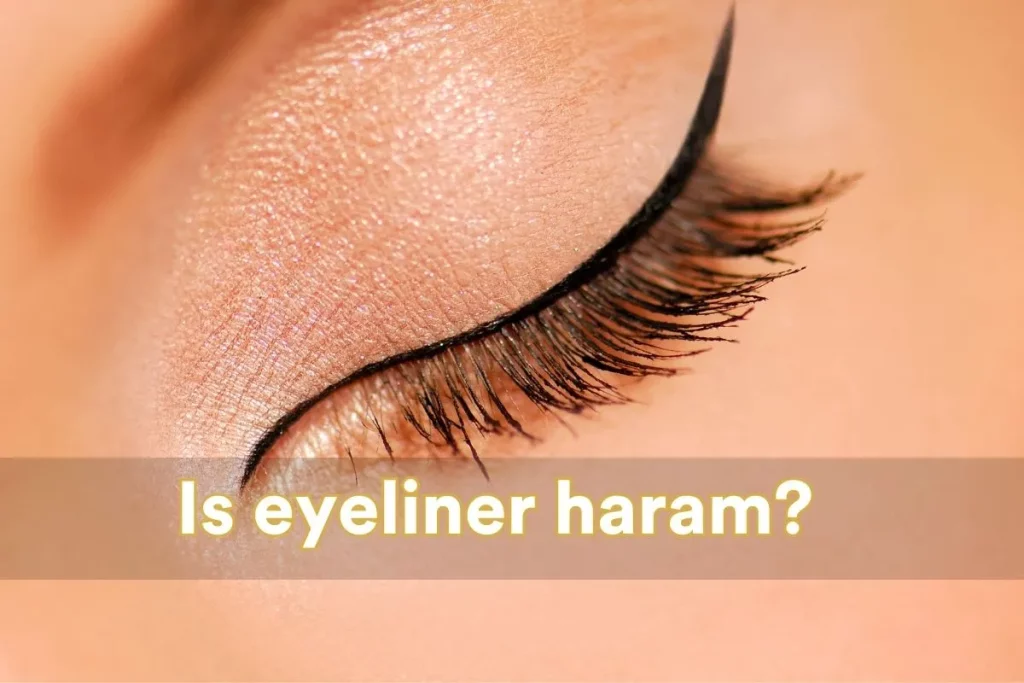In the diverse world of beauty and makeup, a question often arises in the Muslim community: “Is eyeliner haram?” To answer this, we delve deep into the historical context, the different types of eyeliners and their ingredients, and the Islamic perspective on the use of eyeliner.
Historical Use of Eyeliner in Middle Eastern Cultures
Long before eyeliner became a staple in makeup kits, it held a significant place in Middle Eastern cultures. Ancient Egyptians used kohl, a substance created from grinding stibnite, to line their eyes, a practice that was not limited to women but extended to men as well. This tradition transcended beyond aesthetic appeal; it was believed to ward off the evil eye and protect the eyes from infections.
Islamic Golden Age
Moving forward to the Islamic Golden Age, the use of kohl continued, and it was highly favored for its perceived health benefits. Prophet Muhammad ﷺ recommended the use of kohl for its medicinal properties, encouraging its use for the betterment of eye health.
It was during this period that the use of kohl became deeply ingrained in the Islamic culture, transcending beyond a cosmetic product to something that holds religious significance.
Is Eyeliner Haram?
Eyeliner is generally considered halal (permissible) in Islam. The pivotal factor that dictates its permissibility is the intention behind its use. Muslim women who choose to adorn their eyes with eyeliner should maintain a pure intention, avoiding any form of flirtation or engagement in tabarruj, which refers to the Islamic concept of displaying or exaggerating beauty in a manner that attracts attention from non-mahram men.
The Prophet Muhammad ﷺ even endorsed the use of eyeliner, specifically recommending its use with “kohl” (ithmid). In his hadith, he stated:
حَدَّثَنَا أَبُو بَكْرِ بْنُ أَبِي شَيْبَةَ، حَدَّثَنَا عَبْدُ الرَّحِيمِ بْنُ سُلَيْمَانَ، عَنْ إِسْمَاعِيلَ بْنِ مُسْلِمٍ، عَنْ مُحَمَّدِ بْنِ الْمُنْكَدِرِ، عَنْ جَابِرٍ، قَالَ سَمِعْتُ رَسُولَ اللَّهِ ـ صلى الله عليه وسلم ـ يَقُولُ “ عَلَيْكُمْ بِالإِثْمِدِ عِنْدَ النَّوْمِ فَإِنَّهُ يَجْلُو الْبَصَرَ وَيُنْبِتُ الشَّعَرَ
It was narrated that Jabir said:
“I heard the Messenger of Allah (ﷺ) say: ‘You should use antimony (ithmid) when you go to sleep, for it improves the eyesight and makes the hair (eyelashes) grow.’”
Furthermore, it is advised to avoid using waterproof eyeliner as it can prevent water from reaching the skin during ablution, a prerequisite for performing the prayers, thus rendering the ablution invalid.
Different Types of Eyeliner and Their Ingredients
Eyeliners come in various forms, each catering to different preferences and creating distinct looks. Understanding the different types and their ingredients is crucial in determining whether a particular eyeliner is halal or haram. Let’s delve deeper into the common types of eyeliners and their typical ingredients:
Pencil Eyeliner
Pencil eyeliners are popular for their ease of use and precision. They come in a variety of shades and can be either soft or firm, allowing for a versatile range of looks, from sharp lines to smudged, smoky eyes. Here are the common ingredients found in pencil eyeliners:
| Ingredient | Function |
|---|---|
| Waxes (e.g., Carnauba, Beeswax) | Provide structure and consistency |
| Oils (e.g., Castor oil, Lanolin) | Facilitate smooth application |
| Pigments (e.g., Iron oxides, Titanium dioxide) | Impart color to the eyeliner |
Gel Eyeliner
Gel eyeliners offer the precision of a pencil eyeliner combined with the smooth application of a liquid variant. They are often used for creating bold and dramatic looks. Here are the typical ingredients:
| Ingredient | Function |
|---|---|
| Cyclopentasiloxane | Gives a silky, smooth texture |
| Trimethylsiloxysilicate | Helps in creating a waterproof formula |
| Iron Oxides | Provide color |
Liquid Eyeliner
Liquid eyeliners are favored for creating clean and defined lines. They come with a fine brush or a felt tip to facilitate precise application. Here are the common ingredients found in liquid eyeliners:
| Ingredient | Function |
|---|---|
| Water | Acts as a solvent |
| Acrylates Copolymer | Used as a film-forming agent |
| Propylene Glycol | Maintains moisture and improves consistency |
Understanding the ingredients in your eyeliner not only helps in determining its permissibility in Islam but also aids in choosing a product that is safe for your skin and eyes. Moreover, it allows individuals to steer clear of ingredients that might be associated with unethical practices, such as the use of animal-derived components, thereby promoting a conscious and informed approach to makeup usage.
In addition to eyeliners, other eye makeup products such as mascara and fake eyelashes have their set of ingredients that one should be aware of, ensuring a holistic approach to beauty that is in line with one’s values and beliefs.
Possible Haram Ingredients in Eyeliner
While the majority of eyeliners are halal, there exists a possibility of encountering haram ingredients in some products. Ingredients derived from prohibited animals or harmful substances are considered haram. It is, therefore, essential to scrutinize the ingredients list to ensure they meet the halal criteria.
Moreover, considering the modern advancements in the beauty industry, many brands offer halal-certified products, ensuring that the makeup adheres to Islamic guidelines, allowing Muslim women to beautify themselves without compromising their faith.
Final Words
In conclusion, eyeliner is not inherently haram; it is the intention behind its use and the choice of product that can render it permissible or not. By avoiding waterproof eyeliners and maintaining pure intention, Muslim women can enjoy the beauty of eyeliner while adhering to the principles of their faith.
Allahu A’lam (Allah Knows best)
FAQ Frequently Asked Questions
Is there any harm in using eyeliner?
Using eyeliner is generally considered safe. However, it is advisable to opt for products with natural ingredients to avoid any potential harm to the eyes.
What is the significance of kohl in Islam?
Kohl has a rich history in Islamic tradition. Apart from being a beautifying agent, it was used for its perceived health benefits, including protecting the eyes from infections.
Can Muslim men use eyeliner?
Yes, Muslim men can use eyeliner. Historically, men in Middle Eastern cultures used kohl for both aesthetic and medicinal purposes.
Did prophet Muhammad ﷺ wear kohl?
Yes, it is documented in Hadith that Prophet Muhammad ﷺ used kohl, not for beautification, but for its health benefits, encouraging its use for the betterment of eye health.
حَدَّثَنَا أَبُو بَكْرِ بْنُ أَبِي شَيْبَةَ، حَدَّثَنَا يَزِيدُ بْنُ هَارُونَ، عَنْ عَبَّادِ بْنِ مَنْصُورٍ، عَنْ عِكْرِمَةَ، عَنِ ابْنِ عَبَّاسٍ، قَالَ كَانَتْ لِلنَّبِيِّ ـ صلى الله عليه وسلم ـ مُكْحُلَةٌ يَكْتَحِلُ مِنْهَا ثَلاَثًا فِي كُلِّ عَيْنٍ .
It was narrated that Ibn ‘Abbas said:
“The Prophet (ﷺ) had a kohl container from which he would apply kohl three times, to each eye.”
- Is Pop Tarts Halal? What You Need to Know - February 18, 2024
- Are Graham Crackers Halal in Islam? - January 19, 2024
- Is Keebler Wheatables Halal? - January 18, 2024





